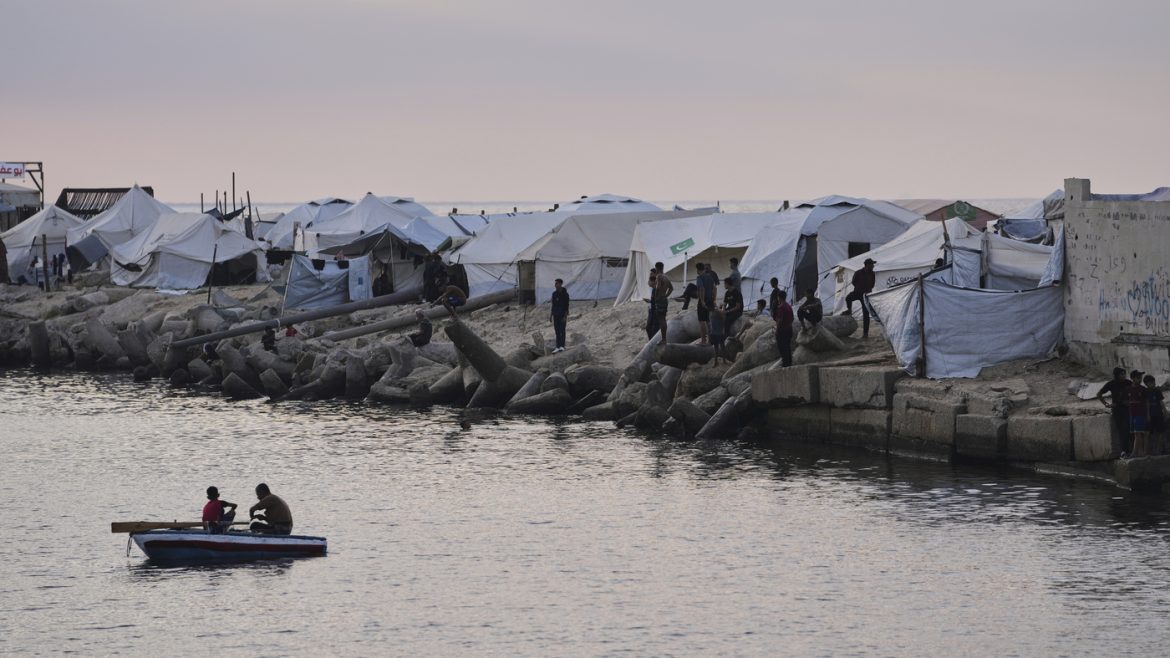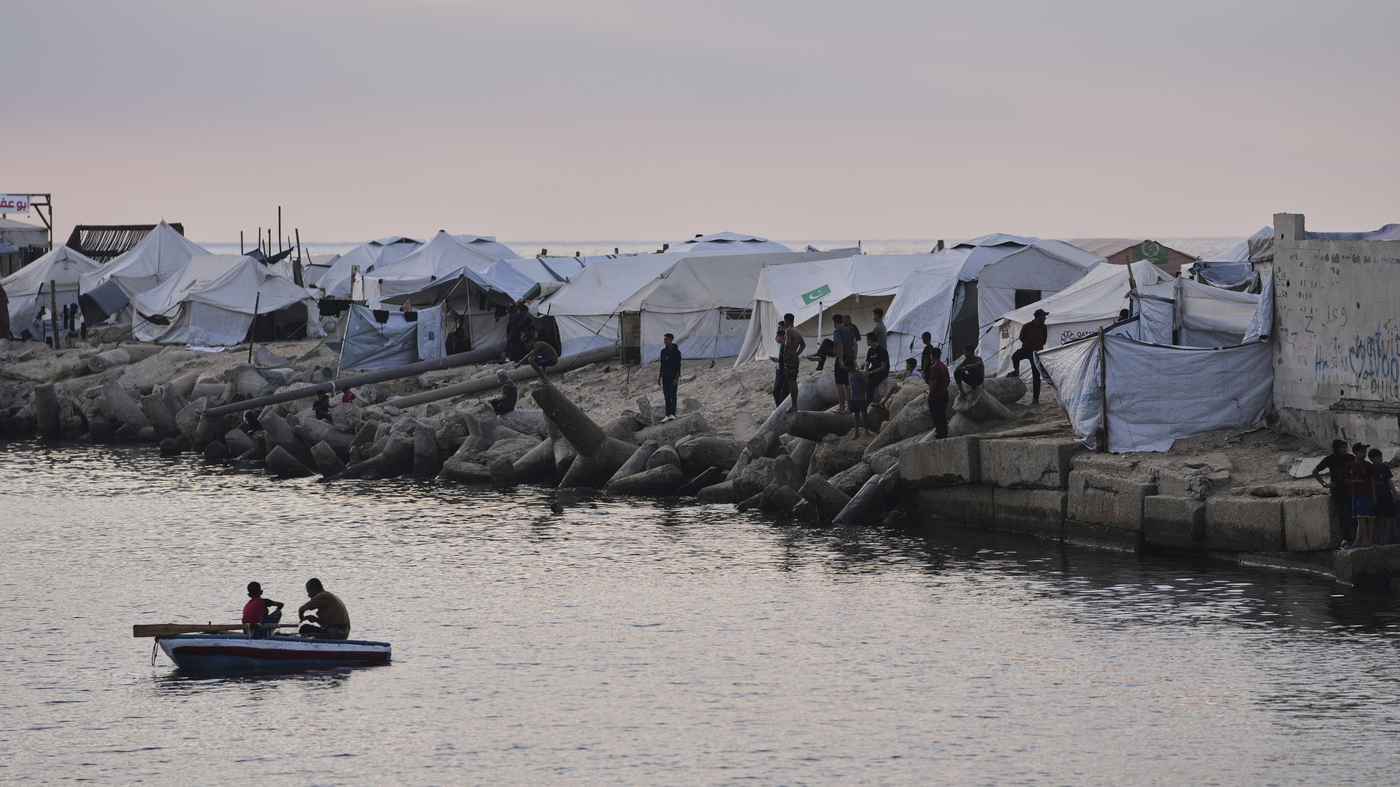The Emergence of a New Armed Group in Gaza
The recent emergence of a new armed group in Gaza, allegedly supported and armed by Israel, has sparked significant debate and controversy. This development, reported by multiple news outlets, introduces a complex layer to the already fraught Israeli-Palestinian conflict, particularly concerning the ongoing war between Israel and Hamas. This report analyzes the claims surrounding this new militia, its potential implications, and the broader context in which it is operating.
The Formation and Composition of the Militia
Reports indicate that this new militia, sometimes referred to as “The Popular Forces” or associated with figures like Yasser Abu Shabab, comprises individuals described as looters and criminals. These groups are purportedly being armed by Israel to counter Hamas’ influence within Gaza. The decision to arm such a group raises several ethical and strategic questions, particularly regarding the potential for human rights abuses and the destabilizing effect of empowering non-state actors with questionable backgrounds.
Israel’s Alleged Support: A Strategy of Divide and Conquer?
The alleged arming of the militia by Israel is described as part of a broader strategy to combat Hamas within the Gaza Strip. Israeli officials reportedly believe that supporting this group can create internal opposition to Hamas, potentially weakening its control over the territory. This “divide and conquer” approach is not new in conflict zones, but it carries substantial risks. Arming a group with a questionable reputation can lead to unintended consequences, including the escalation of violence and the undermining of any future prospects for stability and governance.
Conflicting Narratives: Denials and Strategic Ambiguity
While some reports explicitly state Israel’s direct involvement in arming the militia, other narratives suggest a more nuanced relationship. Some accounts indicate that Israel is providing tacit support or allowing the militia to operate without interference, while others suggest that the arms were found after battle with Hamas. Regardless of the specifics, the emergence of a new armed group in Gaza, especially one perceived to be aligned with Israel’s interests, inevitably raises questions about Israel’s long-term strategy for the region. Benjamin Netanyahu has been quoted saying Israel is fighting Hamas in various ways.
The Haaretz Report: A Detailed Look at the Abu Shabab Militia
Haaretz provided a detailed analysis of the Abu Shabab militia, utilizing satellite images and videos to demonstrate its growing presence in southern Gaza, specifically near Rafah. The report highlights the militia’s activities in an area under direct Israeli control, suggesting a degree of coordination or at least tolerance by Israeli forces. This report also indicates that militias are handing out aid in Israeli coordination.
Challenging Hamas: A Power Vacuum in Gaza?
The rise of this new militia occurs against the backdrop of the ongoing war between Israel and Hamas, which has left Gaza in a state of devastation and created a potential power vacuum. With Hamas’ authority weakened, other groups may seek to fill the void, leading to further fragmentation and instability. The emergence of an anti-Hamas militia, therefore, represents a significant challenge to the existing order in Gaza and could reshape the political landscape of the region.
Humanitarian Concerns: Dispensing Aid and Maintaining Order
Some reports suggest that the new militia is involved in distributing aid to the Gazan population, potentially as a way to gain legitimacy and support. However, concerns remain about the group’s ability to effectively and impartially manage aid distribution, especially given its alleged ties to criminal elements. The involvement of armed groups in humanitarian efforts can also blur the lines between military and civilian functions, potentially endangering aid workers and compromising the neutrality of humanitarian assistance.
International Reactions and Implications
The emergence of an Israeli-backed militia in Gaza has drawn international attention, with various actors expressing concern about the potential for further destabilization and human rights abuses. Some Arab leaders reportedly harbor resentment towards Hamas, but also have an underlying fear of Iran. The international community’s response to this development will likely depend on the specific details of Israel’s involvement and the militia’s conduct on the ground.
Ethical and Legal Considerations
The arming of a militia by a foreign power raises serious ethical and legal questions. Under international law, states are generally prohibited from supporting non-state actors who engage in violence or terrorism. While Israel may argue that its support for the militia is necessary for self-defense, it must also ensure that the group adheres to international humanitarian law and respects human rights. Failure to do so could expose Israel to legal challenges and undermine its international standing.
The Risk of Unintended Consequences
One of the most significant concerns surrounding the arming of the new militia is the potential for unintended consequences. Empowering a group with alleged ties to criminal elements could lead to a breakdown of law and order, an increase in violence against civilians, and the emergence of new forms of extremism. There is also the risk that the militia could eventually turn against Israel or become a tool for other actors seeking to destabilize the region.
A Murky Future for Gaza
The emergence of a new Israeli-armed militia in Gaza adds another layer of complexity to an already volatile situation. The long-term implications of this development are uncertain, but it is clear that it has the potential to reshape the political and security landscape of Gaza.
A Precarious Path Forward
The reports detailing a new Israeli-backed militia emerging in Gaza paint a concerning picture of escalating complexity in the region. The strategy, fraught with ethical dilemmas and the risk of unintended consequences, demands careful scrutiny. Whether this approach will truly diminish Hamas’s influence or further destabilize Gaza remains to be seen. One thing is clear, the path forward is precarious, and the need for a comprehensive, long-term strategy focused on stability, humanitarian aid, and respect for international law is more critical than ever.


